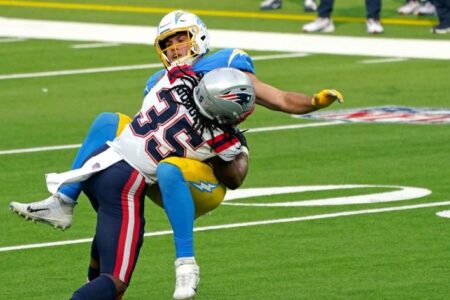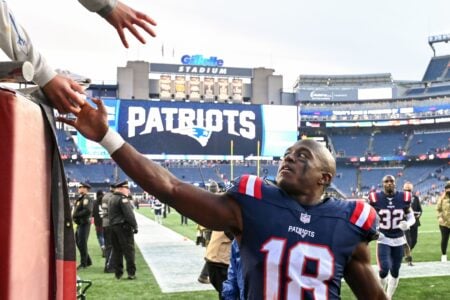Urgent
In the Starting Line-Up
- Joined
- Mar 1, 2005
- Messages
- 3,109
- Reaction score
- 1,942
What if the owners elect to go with the status quo?
We've had lots of discussion about lock-outs or new CBA's.
Why not just allow another year to work under the current rules?
Would the players strike?
The owners opted out of the CBA, as was their right, because they claimed that the system was not profitable or equitable. Before the uncapped season, there was a lot of speculation that salaries could rapidly escalate, driven by spending in Washington, Dallas, and a few other teams.
In fact, it seems that payrolls are down. The Patriots appear to be spending less -- especially if you ignore the $9mm 'cap charge' for Adalius Thomas, which is pure sunk cost from years ago and doesn't count against any cap. It's hard to point to teams that spent a lot more. The consistent trend has been conservatism.
Closer review of the rules showed that the double-edged sword of the uncapped year had one dull side. Yes, there is no salary cap. However, that works both ways, and teams did not race to exceed the prior limits. The constraints of six-year free agency, the Rule of Eight, and other rules limited player movement -- and large deals.
Could the owners really get a better deal this off-season with a new CBA?
Continuing in uncapped limbo would seem to be far more attractive than a lock-out -- stadiums would be full, television money would flow. From the owner's point of view, I don't see much reason to stop the games.
A second uncapped season, further, would send a strong message to the players that the owners' fall-back position is pretty attractive, and they have no reason to yield to a lopsided CBA.
In hindsight, a brilliant CBA clause. Ralph Wilson was right: it was a very complex proposal, and he didn't really understand it. Neither did the players' representatives. But there were some owners who crafted it who apparently understood it very very well.
We've had lots of discussion about lock-outs or new CBA's.
Why not just allow another year to work under the current rules?
Would the players strike?
The owners opted out of the CBA, as was their right, because they claimed that the system was not profitable or equitable. Before the uncapped season, there was a lot of speculation that salaries could rapidly escalate, driven by spending in Washington, Dallas, and a few other teams.
In fact, it seems that payrolls are down. The Patriots appear to be spending less -- especially if you ignore the $9mm 'cap charge' for Adalius Thomas, which is pure sunk cost from years ago and doesn't count against any cap. It's hard to point to teams that spent a lot more. The consistent trend has been conservatism.
Closer review of the rules showed that the double-edged sword of the uncapped year had one dull side. Yes, there is no salary cap. However, that works both ways, and teams did not race to exceed the prior limits. The constraints of six-year free agency, the Rule of Eight, and other rules limited player movement -- and large deals.
Could the owners really get a better deal this off-season with a new CBA?
Continuing in uncapped limbo would seem to be far more attractive than a lock-out -- stadiums would be full, television money would flow. From the owner's point of view, I don't see much reason to stop the games.
A second uncapped season, further, would send a strong message to the players that the owners' fall-back position is pretty attractive, and they have no reason to yield to a lopsided CBA.
In hindsight, a brilliant CBA clause. Ralph Wilson was right: it was a very complex proposal, and he didn't really understand it. Neither did the players' representatives. But there were some owners who crafted it who apparently understood it very very well.


















